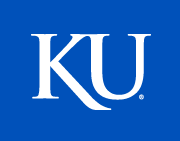
Aerospace Short Courses
Aerospace
Public Courses
Each year, the KU Aerospace Short Course Program offers groups of short courses at specific locations in the U.S. Individual courses range from 1-5 days in length, and are delivered in a traditional classroom setting. Participants learn face-to- face from industry expert instructors. Group discussions and networking opportunities enhance the learning experience.
Courses & Events
AE508-NC: Aerospace Structures II
This course contains no sessions
Click here to be notified about the next scheduled program.
AE727-NC: Aircraft Antenna Systems
This course contains no sessions
Click here to be notified about the next scheduled program.
Advanced Topics in System Safety for Commercial Certification
September 14-18, 2026, San Diego Marriott Mission Valley
Aerodynamic Design of Military Aircraft
September 14-18, 2026, San Diego Marriott Mission Valley
Aircraft Avionics Test and Evaluation Fundamentals
Course preview webinar: Will Urban Air Mobility (UAM) Drive Changes to Avionics Systems Flight Testing?
April 13-17, 2026, DoubleTree Suites by Hilton Hotel Seattle Airport Southcenter
Aircraft Electrification: Architectures, Technologies, and Components
May 18-22, 2026, BEST Conference Center
Aircraft Icing: Meteorology, Protective Systems, Instrumentation and Certification
April 13-16, 2026, DoubleTree Suites by Hilton Hotel Seattle Airport Southcenter
Aircraft Structural Loads: Criteria, Analysis, and Validation
Course preview webinar: eVTOL - Loads and Dynamics Criteria and Considerations
November 2-6, 2026, Renaissance Orlando Resort
Aircraft Structures Flight Testing
November 2-6, 2026, Renaissance Orlando Resort
Aircraft Structures: Analysis and Design
Course preview webinar: Sobering Stories of Aircraft Structural Inadequacy
April 13-17, 2026, DoubleTree Suites by Hilton Hotel Seattle Airport Southcenter
Airplane Flight Dynamics
Course preview webinars: Flight Dynamics in Airplane Design: The Importance of Trim and Airplane Design: Mistakes Made and Lessons Learned
April 13-17, 2026, DoubleTree Suites by Hilton Hotel Seattle Airport Southcenter
Airplane Preliminary Design
November 2-5, 2026, Renaissance Orlando Resort
Cabin Safety and Crashworthiness of Aircraft Cabin Interiors
This course contains no sessions
Click here to be notified about the next scheduled program.
Conceptual Design of Unmanned Aircraft Systems
May 18-20, 2026, BEST Conference Center
DO-178C: Airborne Software Principles and Practices
April 13-15, 2026, DoubleTree Suites by Hilton Hotel Seattle Airport Southcenter
Electrical Wiring Interconnection System (EWIS) and FAA Requirements
Course preview webinar: EWIS - Demonstrating Compliance for Aerospace Compliance
May 18-22, 2026, BEST Conference Center
November 2-6, 2026, Renaissance Orlando Resort
Electrical Wiring Interconnection System (EWIS) Safety Assessment - 25.1709
This course focuses on the requirements and methods that can be used to demonstrate compliance to 14 CFR 25.1709 (EWIS Safety Analysis). The discussion will examine the use of FAA AC 25.1701-1 to prepare a Functional and Physical Analysis. The course will also include an overview of the EWIS requirements included in 14 CFR Part 25, subpart H.
Course preview webinar: Developing an EWIS Safety Analysis: Methodology & Requirements
November 2-6, 2026, Renaissance Orlando Resort
Electromagnetic Effects Aircraft Level Testing and FAA Requirements
April 13-17, 2026, DoubleTree Suites by Hilton Hotel Seattle Airport Southcenter
FAA Type Certification Process
May 18-21, 2026, BEST Conference Center
Flight Test Principles and Practices
September 14-18, 2026, San Diego Marriott Mission Valley
Flight Testing Unmanned Aircraft Systems - Unique Challenges
Course preview webinar: Taking the Pilot out of the Cockpit is a Big Deal!
September 14-16, 2026, San Diego Marriott Mission Valley
Fundamental Avionics
November 2-6, 2026, Renaissance Orlando Resort
Fundamentals of V/STOL Rotorcraft
Course preview webinar: The History of Rotorcraft: Development of an Industry
May 18-21, 2026, BEST Conference Center
High Intensity Radiated Fields (HIRF) Certification and Compliance
September 14-18, 2026, San Diego Marriott Mission Valley
Human Factors Engineering for Civil Flight Deck Design and Certification
November 2-6, 2026, Renaissance Orlando Resort
Hydrogen-based Aircraft and Airports: Concepts, Technologies, and Configurations
September 14-18, 2026, San Diego Marriott Mission Valley
Instructions for Continued Airworthiness Using Enhanced Zonal Analysis Procedure
September 14-16, 2026, San Diego Marriott Mission Valley
Introduction to Electromagnetic Effects (EME) and Aircraft Engineering Requirements
This course will provide participants with an understanding of electromagnetic effects related to aircraft engineering requirements, FAA certification requirements, testing requirements for both DO-160 bench testing and aircraft level testing related to EMC/P-Static/ESD/TPED's/HIRF/EWIS and lightning.
For a more in-depth focus on aircraft level testing and FAA requirements it is recommended to take Electromagnetic Effects Aircraft Level Testing and FAA Requirements, in-person or online after taking this course.
September 14-18, 2026, San Diego Marriott Mission Valley
Introduction to FAA Airworthiness Approval Requirements
April 13-16, 2026, DoubleTree Suites by Hilton Hotel Seattle Airport Southcenter
September 14-17, 2026, San Diego Marriott Mission Valley
Introduction to Fuel Tank Safety and Ignition Prevention: Design, Certification and Compliance
November 2-6, 2026, Renaissance Orlando Resort
Introduction to RTCA DO-160 Qualification: Purpose, Testing and Design Considerations
May 18-22, 2026, BEST Conference Center
Principles of Aeroelasticity
April 13-17, 2026, DoubleTree Suites by Hilton Hotel Seattle Airport Southcenter
Principles of Aerospace Engineering
September 14-16, 2026, San Diego Marriott Mission Valley
Stress Analysis for Aerospace Structures
September 14-18, 2026, San Diego Marriott Mission Valley
System Safety Assessment for Commercial Aircraft Certification
April 13-17, 2026, DoubleTree Suites by Hilton Hotel Seattle Airport Southcenter
November 2-6, 2026, Renaissance Orlando Resort

 Cart (0)
Cart (0)

